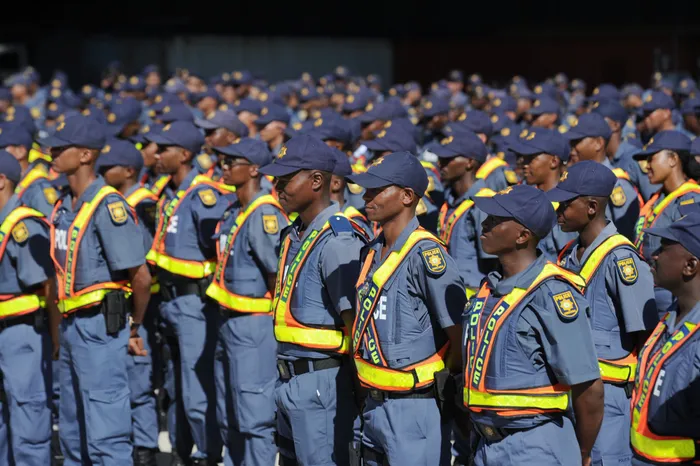
The Human Sciences Research Council’s (HSRC) revealed that only 22% of the citizens trust the police.
Image: Armand Hough/Independent Newspapers
ONLY 22% of citizens trust the police, representing the lowest level of trust in 27 years, according to the Human Sciences Research Council’s (HSRC).
Their study released this week, days after KwaZulu-Natal Police Commissioner Nhlanhla Mkhwanazi lifted the lid on the alleged malfeasance in SAPS, which also implicates Police Minister Senzo Mchunu who has since been placed on special leave.
Mkhwanazi also implicated senior SAPS officials in corruption during his recent media briefing, claiming police have failed to act on evidence tying firearms to high-profile killings, including those of prominent South African artists.
He accused Mchunu of sabotaging critical crime-fighting efforts by ordering the disbandment of the Political Killings Task Team, a unit established in 2018.
Mkhwanazi alleged that Mchunu, in collaboration with Deputy Commissioner General Shadrack Sibiya, withdrew 121 case dockets from the team, leaving them untouched at SAPS headquarters in Pretoria, despite five being ready for arrests.
He also claimed that Mchunu was in constant communication with criminal syndicates, naming a businessman, Vusimuzi “Cat” Matlala, and an associate, Mr Brown Mogotsi (also referred to as Mahodi or Maki in various statements), as key players funding Mchunu’s political activities.
Sibiya, like Mchunu was placed on special leave Tuesday as Mkhwanazi’s allegations now form part of a judicial commission of inquiry to be headed by acting Deputy Chief Justice Mbuyiseli Madlanga.
The HSRC survey also found that well-publicised instances of police abuse or failure can also seem to reduce public confidence, while perceptions of police corruption also had a strong, negative effect on police confidence.
Mkhwanazi’s allegations represent another decisive moment for policing in South Africa, the outcome of which will have a significant bearing on the project to rebuild public trust, said the HSRC.
"Not once during this 27-year interval did more than half the adult public say that they trusted the police. This suggests that the issue of police legitimacy is by no means a new one.
"Over the 1998 to 2010 period, the average level of trust in the police was relatively static. It ranged between 39% and 42% in all but a few years. This was followed by a sharp decline between 2011 and 2013, following the Marikana massacre of August 2012. However, confidence had almost returned to the 2011 level by the time of the 2015 survey round. The 2016 to 2020 period was characterised by modest fluctuation between 31% and 35%. The hard COVID-19 lockdown experience, which including instances of police brutality in enforcing lockdown regulations, did not appear to have had an aggregate effect on confidence levels based on the 2020 survey results."
In 2021 public trust in the police dipped to a low of 27%, and the HSRC attributes this to the July 2021 social unrest.
"This was followed by a further 5 percentage point decline to 22% in 2022, with the 2023 and 2024/25 confidence levels almost unchanged, which may reflect increasing rates for certain crimes. The 2022, 2023 and 2024/25 figures are the lowest recorded in 27 years."
Experts said it was deeply concerning that the public's trust in police continues to decline.
Independent crime and policing consultant, Dr Johna Burger, said the declining levels of trust and confidence in the SAPS over the last two decades were predictable, adding that the National Development Plan of 2012, Parliament's Detective Dialogue Report of September 2012 and the 2018 report by the Panel of Experts on how to strengthen and improve the SAPS are some of the reasons for this decline as none of the recommendations were implemented.
“The SAPS has, over the years, and in many instances, abused its own appointment and promotion policies, enabling them to appoint persons into senior positions for which they were not suitably qualified. The recent highly publicised appointment of a female brigadier from outside the police in Crime Intelligence is a good example."
Cape Times
Related Topics: